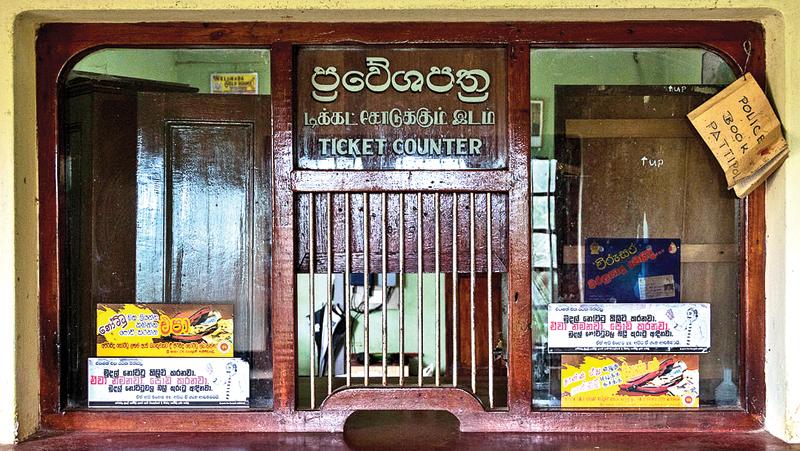
In Sri Lanka, a country with huge traffic congestion in urban and sub urban areas, the Railway is considered a privileged service for hundreds of thousands of commuters. No doubt it is the easiest and most efficient commuting system in the country, today. Plus, it is perhaps, the most affordable mode of transportation.
However, challenging the affordability factor, the railway fare was increased last week. According to N.J. Indipolage, Deputy Commercial Superintendent of Railways, under the budgetary guidelines for year 2018, it is mandatory for all Government institutions which operate as a service provider, to increase their service charges in order to cover up operational costs, unless they had increased the fares in the last 3 years, by at least 15%.
In the event that train fare was last updated 10 years ago, applying a price revision would be timely. Despite the fact that it is welcome by almost everyone, neither the Government nor the Railway authority has submitted the real percentage of the increase.
Sri Lanka Railway announced a 15% increase in its fare. But according to the price revision chart, it varies from 15% to 55% for different destinations.
For instance, a ticket from Fort to Galle (3rd class) was Rs. 100 earlier, and is now Rs. 135, an increase of 35%. Even though the amount seems small, the change in fare for short distance travel is much higher, e.g. the ticket from Fort to Nugegoda cost Rs 20 (2nd class) earlier, and is now Rs. 30, which is a 55% increase. Similarly, the economy class train ticket from Fort to Batticaloa, which was Rs. 230 earlier, is now Rs. 315. Addressing a press conference Ven. Anguradvila Chandrajothi Thera said, in a situation where budgetary allocations for the Sri Lanka Railway is reduced by 50%, raising the ticket fare and suppressing the public cannot be endorsed. “The Railway has to be maintained as a service, not a profit making institution. We urged the Government to provide fuel to the Railway at a concessionary rate and reduce the ticket prices,” said Rev. Chandrajothi, the convener of the Movement of Workers and Passengers for Protecting Railway Service.
However, train commuters expressed mixed reaction on the ticket price revision, and most of them seemed to be okay with the price change.
Ravi Chandrasekara from Wattala said, the train fare for him has been increased not by 15% but 50%. “I travel daily from Hunupitiya to Fort. A few weeks ago it cost me only Rs 10 per journey. Now it costs Rs 15, which is a 50% increase. When I inquired about it, the officer at the ticket counter said, they have reduced the number of Kms falling under the minimum ticket price.
But even after the price increase, Ravi is a happy passenger.
“When considering the other economic conditions of the country increasing the rail fare is not a big issue for us. In fact, the Railway is a top notch service according to my experience, especially, in terms of reducing traffic congestion. Therefore, we must further develop the Railway and motivate more and more people to use the train service,” said Ravi.
“I spent Rs 40 up and down earlier. But now I have to spend Rs 50 per day as train fare. I really don’t mind the increase as it is still below the bus fare rate,” said Pushpika, a commuter from Ragama to Fort.
Kapila Daneniya was reading a newspaper on the platform waiting for his train to Homagama.“I travel by train once every week. The train fare has been increased after 10 years. Therefore, it is not unfair. But when you travel far, the cost is high, and the season ticket price is also high. I travel to Homagama from Fort, which has been increased by 20 rupees”.
Madu, a daily commuter from Gampaha to Panadura has faced an increase of Rs 480 per month on her season ticket. Before the price revision, her season ticket cost her Rs 1,200/- and now it is Rs 1,680/- which is a 40% increase. Even though she welcomes the price revision, she has a big concern about the quality of service of the Railway.
“Increasing the fare is okay. But on the other hand the service too has to be updated. The Railway workers involving in strikes and other union activities cause immense hardship to passengers. Some of the activities are based on personal reasons, which needs to be avoided” she stressed.
Jayantha who works at the Railway, was on the platform waiting for his train to Nugegoda. Instead of increasing the fare, he had better suggestions to make the Railway a profitable institution.
“The responsibility lies on higher officials. When they purchase different supplies, they resort to making money through commissions. That’s where the Railway suffers the biggest loss.The Railway administration has lots of weaknesses. If the Government wishes to make the Railway profitable, such activities should be stopped” Jayantha shared his opinion.
